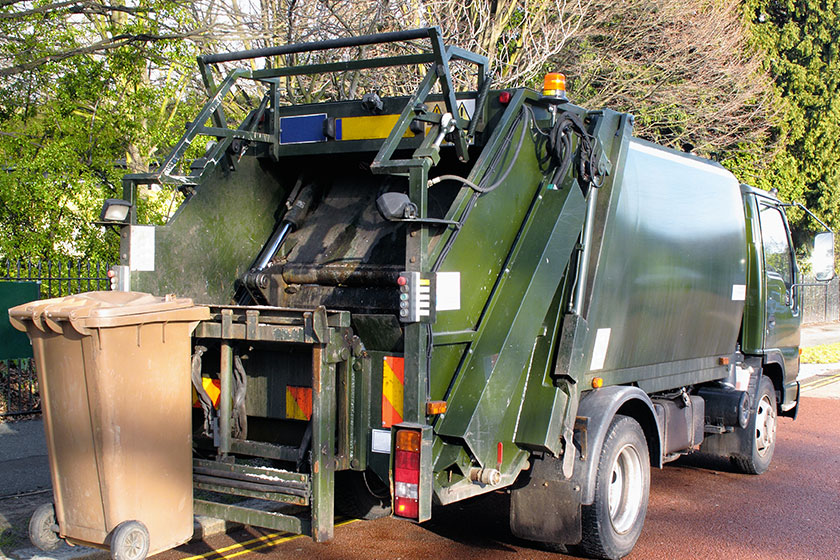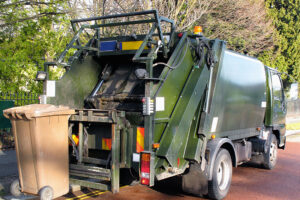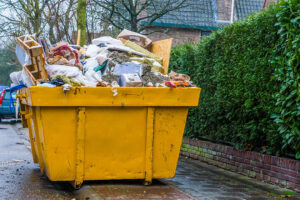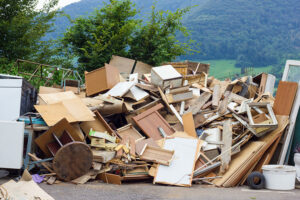Managing and disposing of commercial waste effectively and responsibly is crucial for businesses to minimize their environmental impact and comply with regulations. With a variety of waste types generated by different sectors, understanding the most appropriate disposal methods is essential. This article explores the common types of commercial waste and outlines responsible disposal practices, aiming to guide businesses in making environmentally conscious decisions.
Understanding Commercial Waste
Commercial waste encompasses all types of waste produced by businesses and commercial activities. Unlike residential waste, commercial waste can vary significantly depending on the industry, including office waste, manufacturing byproducts, construction debris, and hazardous materials. Properly managing and disposing of these materials is not just a legal obligation but also a step towards sustainable business practices.
Common Types of Commercial Waste
The classification of commercial waste into distinct categories such as general office waste, industrial and manufacturing waste, construction and demolition debris, hazardous waste, and food and organic waste, underlines the diversity and complexity of waste management in the commercial sector. Each type of waste presents unique challenges and opportunities for responsible disposal and recycling.
- General Office Waste
Predominantly composed of paper, cardboard, plastics, and miscellaneous clutter, general office waste highlights a significant opportunity for recycling. Despite its recyclability, much of it ends up in landfills due to inadequate sorting and recycling programs. Implementing comprehensive recycling initiatives in office settings can drastically reduce this waste stream’s environmental impact.
- Industrial and Manufacturing Waste
Industrial and manufacturing waste includes a wide range of materials such as metals, plastics, wood, and fabric. The sheer volume and variety of waste generated in these sectors necessitate specialized disposal and recycling processes. By identifying and segregating recyclable materials, industries can significantly reduce their landfill contributions and recover valuable resources.
- Construction and Demolition Debris
Construction and demolition debris involves substantial waste, including concrete, bricks, wood, metal, and glass. The emphasis on recycling and proper disposal of hazardous materials within this category is crucial for minimizing environmental harm. Through careful planning and the use of recycling services, construction waste can be substantially reduced.
- Hazardous Waste
Hazardous waste encompassing chemicals, solvents, oils, batteries, and electronic waste, poses significant environmental and health risks. Strict adherence to disposal regulations is imperative to mitigate these risks. Specialized handling and disposal services are essential to ensure these materials do not contaminate ecosystems or endanger human health.
- Food and Organic Waste
Food and organic waste from restaurants, cafes, and food processing industries offer a viable input for composting or bioenergy production. By diverting this waste from landfills and utilizing it for soil enrichment or energy, businesses can play a pivotal role in reducing greenhouse gas emissions and supporting sustainable waste management practices.
Strategies for Disposing of Commercial Waste Responsibly
Disposing of commercial waste responsibly involves several strategies that prioritize recycling, reuse, and the reduction of waste sent to landfills. Here are some key approaches:
- Reduce, Reuse, Recycle: Embracing the three Rs is the foundation of responsible waste management. Businesses should aim to reduce waste generation, find opportunities to reuse materials, and implement comprehensive recycling programs.
- Specialized Recycling Programs: For materials like electronics, batteries, and hazardous waste, specialized recycling programs ensure these items are disposed of safely. These programs protect the environment from harmful substances and recycle materials that can be recovered.
- Composting Organic Waste: Food and organic waste can be composted to create nutrient-rich soil, reducing methane emissions from landfills and supporting sustainable agriculture practices.
- Partnering with Waste Management Experts: Professional waste management companies offer services tailored to the needs of businesses, ensuring waste is collected, sorted, and disposed of or recycled according to best practices.
Challenges in Disposing of Commercial Waste
Despite the availability of responsible disposal methods, businesses face challenges in implementing effective waste management strategies. These challenges include the cost of recycling and waste disposal, the complexity of sorting and handling different types of waste, and the need for education and training for employees. Overcoming these challenges requires a commitment to sustainability and the willingness to invest in long-term waste management solutions.
The Importance of Compliance and Sustainability
Compliance with local and national waste disposal regulations is not just a legal requirement; it’s also an essential aspect of corporate responsibility. By adopting sustainable waste management practices, businesses can contribute to the preservation of natural resources, reduce their carbon footprint, and build a positive reputation with customers and the community.
Practical Steps for Enhancing Commercial Waste Disposal
Implementing effective waste management in a commercial setting goes beyond just knowing the types of waste and their respective disposal methods. Businesses must take practical steps to integrate these practices into their daily operations. Here are actionable strategies that can significantly improve waste disposal efforts.
Conduct a Waste Audit
Understanding the types and quantities of waste your business generates is the first step in improving waste management practices. A thorough waste audit provides insights into waste streams and identifies opportunities for reduction and recycling.
Implement Segregation at Source
Separate waste at the point of generation. This means having different bins for recyclables, organic waste, and non-recyclables. Segregation at source simplifies recycling processes and ensures more materials can be effectively recovered.
Educate Employees
Employee awareness and participation are crucial for the success of any waste management program. Conduct training sessions to educate staff on the importance of waste segregation, recycling, and the environmental impact of improper disposal.
Opt for Sustainable Packaging
Businesses can reduce waste significantly by choosing sustainable packaging options. This includes using recyclable materials, minimizing packaging, and opting for reusable containers wherever possible.
Partner with Local Recyclers
Establish partnerships with local recycling centers or programs to ensure your recyclable waste is processed properly. This not only supports local businesses but also contributes to the circular economy.
Invest in Waste Compactors
For businesses generating large volumes of waste, investing in compactors can reduce the volume of waste sent to landfills. Compacted waste is easier and more cost-effective to transport, contributing to overall waste reduction.
Monitor and Report
Regularly monitor waste management practices and report on progress. Tracking the amount of waste generated, recycled, and disposed of helps in evaluating the effectiveness of your waste management strategy and identifying areas for improvement.
At Rocket Waste, we understand the challenges businesses face in managing and disposing of commercial waste. That’s why we’re dedicated to providing comprehensive waste management solutions tailored to the unique needs of each client. With our expertise in various waste types, from general office waste to hazardous materials, we offer specialized disposal and recycling services designed to minimize environmental impact.
We prioritize eco-friendly practices, working closely with clients to implement effective waste reduction strategies, recycling programs, and sustainable waste disposal methods. Our commitment to environmental responsibility is matched by our dedication to customer service, ensuring that your waste management needs are met with efficiency and professionalism.
Let us be your partner in achieving your sustainability goals. By choosing Rocket Waste, you’re not just managing waste; you’re contributing to a healthier planet and a sustainable future for all.




